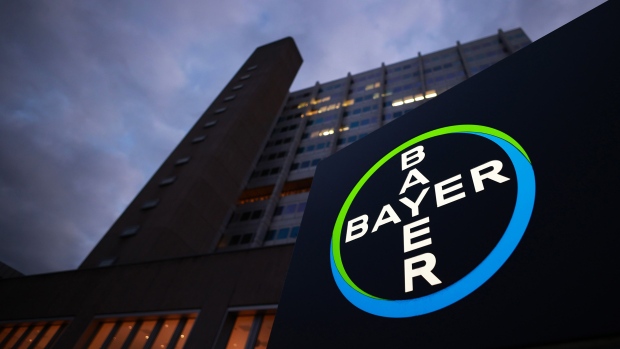Nov 21, 2023
Bayer’s Drug and Legal Blows Leave CEO Less Room to Maneuver
, Bloomberg News

(Bloomberg) -- Bayer AG Chief Executive Officer Bill Anderson told investors that recent drug pipeline and legal setbacks have left the German company less room for maneuver as it considers a breakup.
The pharma, agriculture and consumer health conglomerate is likely to be saddled with more debt and less revenue than it had expected going forward, he said. That could affect the relative attractiveness of different restructuring approaches, as Bayer can’t overburden any new corporate entities with borrowings.
“The impact of these recent events doesn’t change what our strategic options are,” Anderson said on a call with investors Tuesday, a day after shares plunged the most in Bayer’s history. “It just may mean that some of those conditions are a little tighter than they otherwise would be.”
Anderson is dealing with the fallout of Bayer’s decision on Sunday to end a late-stage test for the anti-thrombotic drug asundexian due to a lack of efficacy. In January, Bayer projected that asundexian could reach peak sales of more than €5 billion ($5.5 billion), making it the largest among Bayer’s four “key growth drivers” for the pharma division.
On Tuesday’s call, Bayer officials confirmed plans to continue a separate late-stage trial of the drug on another group of patients, which — if successful — could mean Bayer would make money from it as early as 2026. Bayer is also reevaluating plans for a third trial that would include patients who are age 65 and up. Nonetheless, the poor results from the main asundexian trial were surprising and will force the company to revisit its projected sales for the medicine.
The pipeline setback came two days after Bayer’s Monsanto unit was ordered by a Missouri jury to pay more than $1.5 billion to three former Roundup users who blamed their cancers on the product in one of its largest trial losses over the herbicide. Bayer says it will appeal the ruling and insists the product is safe.
Bayer’s shares plunged 18% on Monday, and were little changed Tuesday. The stock has dropped 30% this year.
The events raise the stakes for Anderson, who joined the company this spring and took over as CEO in June, as he weighs a potential breakup of the conglomerate.
Anderson said he’s pushing ahead with his review, noting that he’s still open to either selling off the consumer health unit, listing it as a separate entity or spinning it off. But each of those options has a different time line in terms of raising funds and paying down debt. “That’s the kind of evaluation that we’re doing,” he said.
While he’s also considering separating the crop science division, Anderson noted that it would be easier to do so if there was a positive outlook in the agricultural commodities market and more certainty around litigation over products like Roundup.
“There’s no secret that those are general factors that we have to consider,” he said.
--With assistance from Thomas Mulier.
©2023 Bloomberg L.P.





